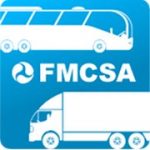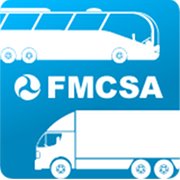National Legislative Director John Risch and Local 759 (Newark, N.J.) Secretary and Treasurer Craig Harrison testified at a public hearing today before the Federal Motor Carrier Safety Administration (FMCSA) and the Federal Railroad Administration (FRA) about Obstructive Sleep Apnea.
Harrison, who works for Coach USA, testified about his hardships as a result of being diagnosed with Sleep Apnea.
Click here to read Risch’s testimony before the FRA and FMCSA.
Tag: FMCSA


A) Washington, DC, on Thursday, May 12, 2016, at the National Association of Home Builders, 1201 15th Street, NW, Washington, DC 20005;
B) Chicago, IL, on Tuesday, May 17, 2016, at the Marriott Courtyard Chicago Downtown/River North, 30 E. Hubbard Street, Chicago, IL 60611; and
C) Los Angeles, CA, on Wednesday, May 25, 2016, at the Westin Bonaventure Hotel and Suites, 404 S. Figueroa Street, Los Angeles, CA 90071.
All sessions will run from 10:00 a.m. to noon and 1:30 p.m. to 3:30 p.m., local time. If all interested parties have had the opportunity to comment, the sessions may conclude early. Click here to read the Federal Register notice.


“Since 1938, complex, on-duty/off-duty logs for truck and bus drivers were made with pencil and paper, virtually impossible to verify,” said U.S. Transportation Secretary Anthony Foxx. “This automated technology not only brings logging records into the modern age, it also allows roadside safety inspectors to unmask violations of federal law that put lives at risk.”
The final rule requiring the use of electronic logging devices (ELD) will result in an annual net benefit of more than $1 billion – largely by reducing the amount of required industry paperwork. It will also increase the efficiency of roadside law enforcement personnel in reviewing driver records. Strict protections are included that will protect commercial drivers from harassment.
On an annual average basis, the ELD Final Rule is estimated to save 26 lives and prevent 562 injuries resulting from crashes involving large commercial motor vehicles.
“This is a win for all motorists on our nation’s roadways,” said FMCSA Acting Administrator Scott Darling. “Employing technology to ensure that commercial drivers comply with federal hours-of-service rules will prevent crashes and save lives.”
An ELD automatically records driving time. It monitors engine hours, vehicle movement, miles driven and location information.
Federal safety regulations limit the number of hours commercial drivers can be on-duty and still drive, as well as the number of hours spent driving. These limitations are designed to prevent truck and bus drivers from becoming fatigued while driving, and require that drivers take a work break and have a sufficient off-duty rest period before returning to on-duty status.
The four main elements of the ELD Final Rule include:
- Requiring commercial truck and bus drivers who currently use paper log books to maintain hours-of-service records to adopt ELDs within two years. It is anticipated that approximately three million drivers will be impacted.
- Strictly prohibiting commercial driver harassment. The Final Rule provides both procedural and technical provisions designed to protect commercial truck and bus drivers from harassment resulting from information generated by ELDs. [A separate FMCSA rulemaking further safeguards commercial drivers from being coerced to violate federal safety regulations and provides the agency with the authority to take enforcement actions not only against motor carriers, but also against shippers, receivers and transportation intermediaries.]
- Setting technology specifications detailing performance and design requirements for ELDs so that manufacturers are able to produce compliant devices and systems – and purchasers are enabled to make informed decisions.
- Establishing new hours-of-service supporting document (shipping documents, fuel purchase receipts, etc.) requirements that will result in additional paperwork reductions. In most cases, a motor carrier would not be required to retain supporting documents verifying on-duty driving time.
The ELD Final Rule permits the use of smart phones and other wireless devices as ELDs, so long as they satisfy technical specifications, are certified and are listed on an FMCSA website. Canadian- and Mexican-domiciled drivers will also be required to use ELDs when operating on U.S. roadways.
Motor carriers who have previously installed compliant Automatic On-Board Recording Devices may continue to use the devices for an additional two years beyond the compliance date.
A copy of the ELD Final Rule announced today is available at: https://www.fmcsa.dot.gov/hours-service/elds/electronic-logging-devices-and-hours-service-supporting-documents.
Further information, including a comprehensive, searchable list of frequently asked questions, and a calendar of upcoming free training webinars, is available https://www.fmcsa.dot.gov/elds.

“Since 1938, complex, on-duty/off-duty logs for truck and bus drivers were made with pencil and paper, virtually impossible to verify,” said U.S. Transportation Secretary Anthony Foxx. “This automated technology not only brings logging records into the modern age, it also allows roadside safety inspectors to unmask violations of federal law that put lives at risk.”
The final rule requiring the use of electronic logging devices (ELD) will result in an annual net benefit of more than $1 billion – largely by reducing the amount of required industry paperwork. It will also increase the efficiency of roadside law enforcement personnel in reviewing driver records. Strict protections are included that will protect commercial drivers from harassment.
On an annual average basis, the ELD Final Rule is estimated to save 26 lives and prevent 562 injuries resulting from crashes involving large commercial motor vehicles.
“This is a win for all motorists on our nation’s roadways,” said FMCSA Acting Administrator Scott Darling. “Employing technology to ensure that commercial drivers comply with federal hours-of-service rules will prevent crashes and save lives.”
An ELD automatically records driving time. It monitors engine hours, vehicle movement, miles driven and location information.
Federal safety regulations limit the number of hours commercial drivers can be on-duty and still drive, as well as the number of hours spent driving. These limitations are designed to prevent truck and bus drivers from becoming fatigued while driving, and require that drivers take a work break and have a sufficient off-duty rest period before returning to on-duty status.
The four main elements of the ELD Final Rule include:
- Requiring commercial truck and bus drivers who currently use paper log books to maintain hours-of-service records to adopt ELDs within two years. It is anticipated that approximately three million drivers will be impacted.
- Strictly prohibiting commercial driver harassment. The Final Rule provides both procedural and technical provisions designed to protect commercial truck and bus drivers from harassment resulting from information generated by ELDs. [A separate FMCSA rulemaking further safeguards commercial drivers from being coerced to violate federal safety regulations and provides the agency with the authority to take enforcement actions not only against motor carriers, but also against shippers, receivers and transportation intermediaries.]
- Setting technology specifications detailing performance and design requirements for ELDs so that manufacturers are able to produce compliant devices and systems – and purchasers are enabled to make informed decisions.
- Establishing new hours-of-service supporting document (shipping documents, fuel purchase receipts, etc.) requirements that will result in additional paperwork reductions. In most cases, a motor carrier would not be required to retain supporting documents verifying on-duty driving time.
The ELD Final Rule permits the use of smart phones and other wireless devices as ELDs, so long as they satisfy technical specifications, are certified and are listed on an FMCSA website. Canadian- and Mexican-domiciled drivers will also be required to use ELDs when operating on U.S. roadways.
Motor carriers who have previously installed compliant Automatic On-Board Recording Devices may continue to use the devices for an additional two years beyond the compliance date.
A copy of the ELD Final Rule announced today is available at: https://www.fmcsa.dot.gov/hours-service/elds/electronic-logging-devices-and-hours-service-supporting-documents.
Further information, including a comprehensive, searchable list of frequently asked questions, and a calendar of upcoming free training webinars, is available https://www.fmcsa.dot.gov/elds.

“Our nation relies on millions of commercial vehicle drivers to move people and freight, and we must do everything we can to ensure that they are able to operate safely,” said U.S. Transportation Secretary Anthony Foxx. “This Rule enables us to take enforcement action against anyone in the transportation chain who knowingly and recklessly jeopardizes the safety of the driver and of the motoring public.”
The Final Rule addresses three key areas concerning driver coercion: procedures for commercial truck and bus drivers to report incidents of coercion to the FMCSA, steps the agency could take when responding to such allegations, and penalties that may be imposed on entities found to have coerced drivers.
“Any time a motor carrier, shipper, receiver, freight-forwarder, or broker demands that a schedule be met, one that the driver says would be impossible without violating hours-of-service restrictions or other safety regulations, that is coercion,” said FMCSA Acting Administrator Scott Darling. “No commercial driver should ever feel compelled to bypass important federal safety regulations and potentially endanger the lives of all travelers on the road.”
In formulating this Rule, the agency heard from commercial drivers who reported being pressured to violate federal safety regulations with implicit or explicit threats of job termination, denial of subsequent trips or loads, reduced pay, forfeiture of favorable work hours or transportation jobs, or other direct retaliations.
Some of the FMCSA regulations drivers reported being coerced into violating included: hours-of-service limitations designed to prevent fatigued driving, commercial driver’s license (CDL) requirements, drug and alcohol testing, the transportation of hazardous materials, and commercial regulations applicable to, among others, interstate household goods movers and passenger carriers.
Commercial truck and bus drivers have had whistle-blower protection through the Department of Labor’s Occupational Safety and Health Administration (OSHA) since 1982, when the Surface Transportation Assistance Act (STAA) was adopted. The STAA and OSHA regulations protect drivers and other individuals working for commercial motor carriers from retaliation for reporting or engaging in activities related to certain commercial motor vehicle safety, health, or security conditions. STAA provides whistleblower protection for drivers who report coercion complaints under this Final Rule and are then retaliated against by their employer.
In June 2014, FMCSA and OSHA signed a Memorandum of Understanding to strengthen the coordination and cooperation between the agencies regarding the anti-retaliation provision of the STAA. The Memorandum allows for the exchange of safety, coercion, and retaliation allegations, when received by one agency, that fall under the authority of the other.
For more information on what constitutes coercion and how to submit a complaint to FMCSA, see: www.fmcsa.dot.gov/safety/coercion. Please note: the Final Rule takes effect 60 days following its publication in the Federal Register.
This rulemaking was authorized by Section 32911 of the Moving Ahead for Progress in the 21st Century Act (MAP-21) and the Motor Carrier Safety Act of 1984 (MCSA), as amended.
For a copy of today’s Federal Register announcement, see: www.federalregister.gov/articles/2015/11/30/2015-30237/prohibiting-coercion-of-commercial-motor-vehicle-drivers.
* * *
The public, commercial drivers, motor carriers, and other industry members may file a safety, service, or discrimination complaint against a household goods moving company, bus, or truck company, including hazardous materials hauler or a cargo tank facility, by calling toll free 1-888-DOT-SAFT (1-888-368-7238) from 9:00 a.m. to 7:00 p.m., Monday through Friday, Eastern Time. Complaints may also be submitted through FMCSA’s National Consumer Complaint website at: http://nccdb.fmcsa.dot.gov.
FMCSA was established as a separate administration within the U.S. Department of Transportation on January 1, 2000, pursuant to the Motor Carrier Safety Improvement Act of 1999. Its primary mission is to reduce crashes, injuries, and fatalities involving large trucks and buses. For more information on FMCSA’s safety programs and activities, visit: http://www.fmcsa.dot.gov.
OSHA enforces the whistleblower provisions of the Occupational Safety and Health Act and 21 other statutes protecting employees who report violations of various workplace, commercial motor vehicle, airline, nuclear, pipeline, environmental, railroad, public transportation, maritime, consumer product, motor vehicle safety, health care reform, corporate securities, food safety, and consumer financial reform regulations. Additional information is available at: http://www.whistleblowers.gov.
Under the Occupational Safety and Health Act of 1970, employers are responsible for providing safe and healthful workplaces for their employees. OSHA’s role is to ensure these conditions for America’s working men and women by setting and enforcing standards, and providing training, education, and assistance. For more information, visit: http://www.osha.gov.

The final rule was cleared by the White House Office of Management and Budget on Thursday, Nov. 12.
The regulation has been much anticipated by truckers, who often find themselves forced with violating regulations because of pressure from shippers, receivers, brokers, etc.
Read more from Land Line mag.com.

This guidance revises Question 2 of the regulatory guidance for §395.15 which prohibits CMV drivers from “amending” AOBRD records (65 FR 16370, 1997). FMCSA notes that the prohibition was put in place because technology at the time did not allow for distinguishing legitimate amendments to the records from falsified ones. With modern information technology systems and controls, and the ability for records to reflect both the original and edited entry, FMCSA believes that this no longer represents as much of a concern.
Further, FMCSA states that drivers may need to make legitimate changes to their AORBD record, and should be able to do so. This revision will allow drivers to edit entries as long as the AOBRD record reflects both the original entry, the revised entry, information on who made the revision, the time and the reason. Drivers may only make edits relating to driving time in cases of unidentified or team drivers, or if an entry was assigned to the wrong driver. Finally, motor carrier staff may request a driver make an edit, in which case the driver must choose to accept or reject the change, and resubmit and re-certify the corrected record.
This guidance is retroactively effective October 2, 2015. Click here to read FMCSA’s regulatory guidance as published in the Federal Register.

The Federal Motor Carrier Safety Administration (FMCSA) and the Federal Railroad Administration (FRA) recently initiated a rulemaking project to evaluate – and treat, when applicable – workers who exhibit risk factors for sleep apnea. The agencies began work Oct. 1 on an advance notice of proposed rulemaking, according to a Department of Transportation regulatory report.
Read more from Safety + Health Magazine.
Click here for symptoms of sleep apnea from the FMCSA.

“We support job opportunities for Veterans who have served our country, but not only because it is the right thing to do, it also makes good sense,” said U.S. Transportation Secretary Anthony Foxx. “One of the most important, fastest growing employment sectors is for qualified commercial vehicle drivers and Veterans bring invaluable experience to the industry and can enter the workforce quickly.”
“We doubled the amount we have previously provided through this grant program because of the important role qualified commercial truck and bus drivers hold in moving our economy forward,” said FMCSA Acting Administrator Scott Darling. “The men and women who complete these commercial driver training programs also serve our country in a vital way by making safety their top priority every mile, every day.”
FMCSA awards CMV-OST grants to a variety of educational institutions that provide truck driving training, including accredited public or private colleges, universities, vocational-technical schools, post-secondary educational institutions, truck driver training schools, associations, and state and local governments, including federally-recognized Native American tribal governments.
The 2015 FMCSA grants announced today will provide training for hundreds of new students. The awards were made to the following organizations:
- California – West Hills Community College District, Coalinga, $199,460
- Georgia – Central Georgia Technical College, Macon, $146,771
- Maryland – Cecil College, North East, $101,825
- New York – Erie 2 Chautauqua Cattaraugus BOCES, Angola, $105,201
- North Carolina – North Carolina Department of Transportation, Raleigh, $200,000
- Ohio – Cuyahoga Community College District, Cleveland, $195,040
- Oklahoma – Central Technical Center, Drumright, $200,000
- Pennsylvania – Lancaster County Career & Technology Center, Willow Street, $194,811
- Pennsylvania – Northampton County Area Community College, Bethlehem, $134,400
- Pennsylvania – The Sage Corporation, Camp Hill, $198,504
- South Carolina – Orangeburg-Callhoun Technical College, Orangeburg, $197,399
- Texas – Alamo Colleges/ St. Phillip’s College, San Antonio, $196,680
- Virginia – Tidewater Community College, Norfolk, $199,879
The Commercial Motor Vehicle – Operator Safety Training Grant Program was established by Congress in 2005 through the Safe, Accountable, Flexible, Efficient Transportation Equity Act – A Legacy for Users (SAFETEA-LU), to expand the number of commercial driver’s license (CDL) holders possessing enhanced operator safety training to help reduce the severity and number of crashes on U.S. roads involving large trucks and buses.
In July 2014, FMCSA announced that the Military Skills Test Waiver Program had been expanded to include all 50 states and the District of Columbia.
Under this program, state licensing agencies have authority to waive the skills test portion of the CDL application for active duty or recently separated veterans who possess at least two years of safe driving experience operating a military truck or bus. Waiving the skills test expedites the civilian commercial drivers licensing application process and reduces expenses for qualified individuals and operating costs to state licensing agencies.
FMCSA last year also announced that, beginning with Virginia residents, returning military service personnel who possess a state-issued Skill Performance Evaluation (SPE) certificate due to a limb impairment will automatically be recognized as equivalent to an FMCSA-issued SPE certificate and allowed to obtain an interstate commercial driver’s license (CDL). FMCSA encourages other state licensing agencies to establish comparable equivalency SPE programs.
To learn more about the Commercial Motor Vehicle – Operator Safety Training Grant Program, please visit https://www.fmcsa.dot.gov/grants/cmv-operator-safety-training-grant/commercial-motor-vehicle-cmv-operator-safety-training.
For a listing of last year’s CMV – OST grant recipients, please visit https://www.fmcsa.dot.gov/newsroom/fmcsa-awards-1-million-help-train-and-place-veterans-careers-commercial-truck-and-bus.
To learn more about the Military Skills Test Waiver Program, please visit https://www.fmcsa.dot.gov/registration/commercial-drivers-license/military.
To learn more about the U.S. Department of Transportation’s dedication to our nation’s veterans, please visit http://www.dot.gov/veteranstransportationcareers.

